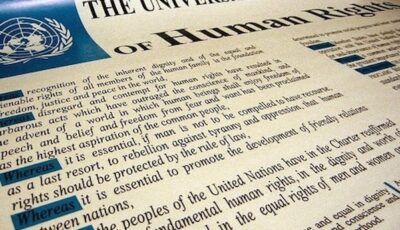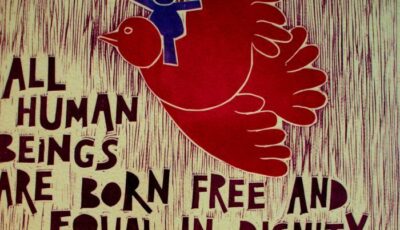The UK’s Supreme Court decision this week that trans women are not ‘biological women’ is a major step backwards for trans rights in Britain.
The landmark ruling, passed unanimously in Britain’s highest court on April 16th, determines that the definition of a ‘woman’ in equality legislation only refers to ‘a biological woman and biological sex’. The case had centred on whether somebody with a gender recognition certificate (GRC) – a document that recognises their gender as female – should be treated as a woman under the Equality Act of 2010.
Concluding the case of For Women Scotland v Scottish Ministers, the judge claimed that trans people are still protected from discrimination and harassment under the law. But far from protecting rights, this shameful judgement risks further marginalising the trans community and undermining decades of campaigning for recognition and equality.
The court’s decision means that transgender women can no longer sit on public boards in places set aside for women. And it could also impact the way that trans people use women-only spaces and services across the UK.
Many trans rights campaigners have decried the fact that not a single trans person was allowed to speak before the court, therefore excluding the voices of one of society’s most silenced groups. The case was brought by a group called For Women Scotland that believes sex is biological and cannot be changed, so trans women are not really women. But this ignores the lived realities and felt identities of trans people across the UK and worldwide.
This also perpetuates a dangerous message that appeals to the prejudices of far right groups, further stoking division and threatening to give legal cover to discrimination.
The continued trajectory of these legal and parliamentary processes is incredibly worrying, especially at a time when vital welfare and public support is being cut for those who most need it. About a half of trans people are also disabled.
In this day and age, it should not need to be argued that trans rights are human rights, and trans women are women. That everyone has the right to live free from discrimination and fear.
The rights group Amnesty International was forced to intervene in the court case to remind the court that legal gender recognition is essential for trans people to enjoy the full spectrum of rights each of us is entitled to, including safety, health and family life.
As Ruth Crawford KC argued in front of the Supreme Court, transgender people have a fundamental right to be recognised, and someone with a GRC is entitled to legal protections ‘just as much as others enjoy those protections who are recorded as a woman at birth’.
Further resources:
Supreme Court ruling has dire consequences for trans people, campaigners warn – BBC
What does the UK Supreme Court ruling mean for transgender women? – Independent
Supreme Court trans ruling is a devastating regression in women’s rights – Big Issue
Image credit: Steve Johnson, Unsplash com




